Report of the official mission to Greece
On Wednesday 16 and Thursday 17 June, Deputy Prime Minister and Minister for Foreign and European Affairs Sophie Wilmès led an official mission to Greece. It had been several years since any member of the Belgian executive had visited the country. Belgium and Greece enjoy excellent bilateral relations and cooperate very positively within the European Union. This trip provided an opportunity to build on this momentum and discuss issues of common interest with a number of key political representatives. A significant part of this visit was devoted to the theme of migration. Greece is a "frontline" country on the border of Europe and at the crossroads of important migration routes.
Visit to the refugee camp at Mavrovouni (Lesbos)
Accompanied by the Belgian Secretary of State for Asylum and Migration, Sammy Mahdi, Deputy Prime Minister Wilmès wanted to begin this official mission with a field visit to the island of Lesbos (Mytilene). The island is located 15 km off the Turkish coast and has been subject to particularly strong migratory pressure since 2015. This first stage of the mission was part of the ongoing discussions at European level on the draft Pact on Migration and Asylum, presented by the European Commission in September.
The visit was to the camp of Mavrovouni, which took over from the Moria camp following the fire in 2020. The Deputy Prime Minister was able to observe the major efforts made by the Greek authorities and the European and international partners, although considerable work remains to be done to improve living conditions, which are still very difficult. She also noted the efforts undertaken in the camp to vaccinate refugees against COVID-19. Whilst there, she met mainly with the Greek Secretary General for Asylum and Migration, Mr Manos Logothetis, and the Head of the United Nations High Commissioner for Refugees (UNHCR), Ms Astrid Castelein. The visit continued at the school run by the METAdrasi association, which takes in several dozen children living in the camp to provide them with a basic education with a view to facilitating their integration into the Greek school system. At both the camp and the school, the Deputy Prime Minister's visit was punctuated by several face-to-face meetings with children whose testimonies illustrated both the adversity and the hope experienced by the Mavrovouni camp's inhabitants. "This field visit shows a raw reality, both the distress of the migrants and the pressure on the inhabitants of Lesbos, who have seen their population double in just a few years. This has strengthened my conviction that a European solution is the only one possible. This solution must strike a good balance between the responsibility of the front-line countries and solidarity within the Union. Belgium is already doing a lot of work in this area, and is also dealing with the phenomenon of 'secondary migration'. But everyone must play the game in Europe," said Sophie Wilmès. She also stressed the importance of adopting a comprehensive approach to migration, including development cooperation and work with the countries of origin and transit.
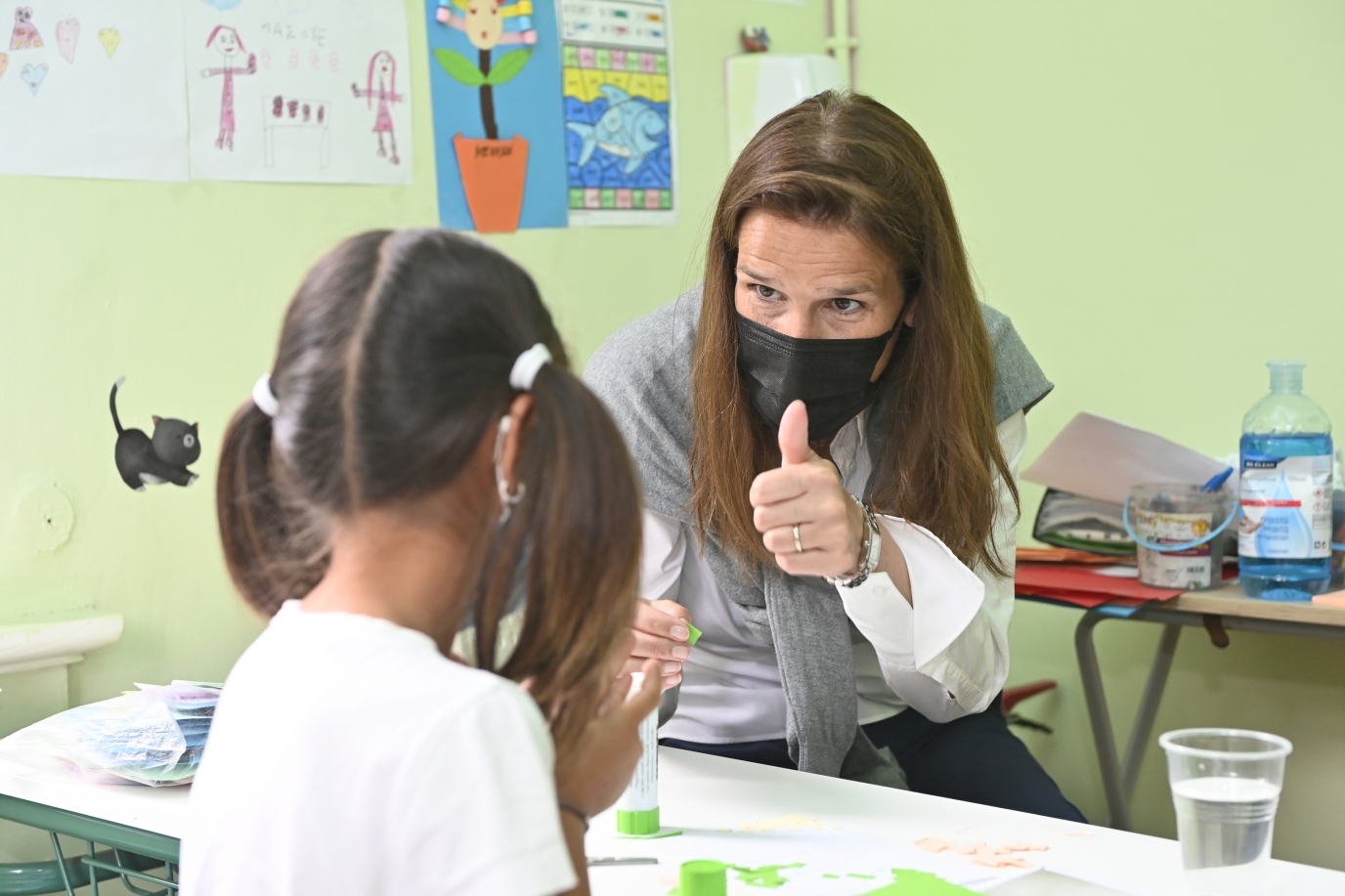 © LAURIE DIEFFEMBACQ
© LAURIE DIEFFEMBACQ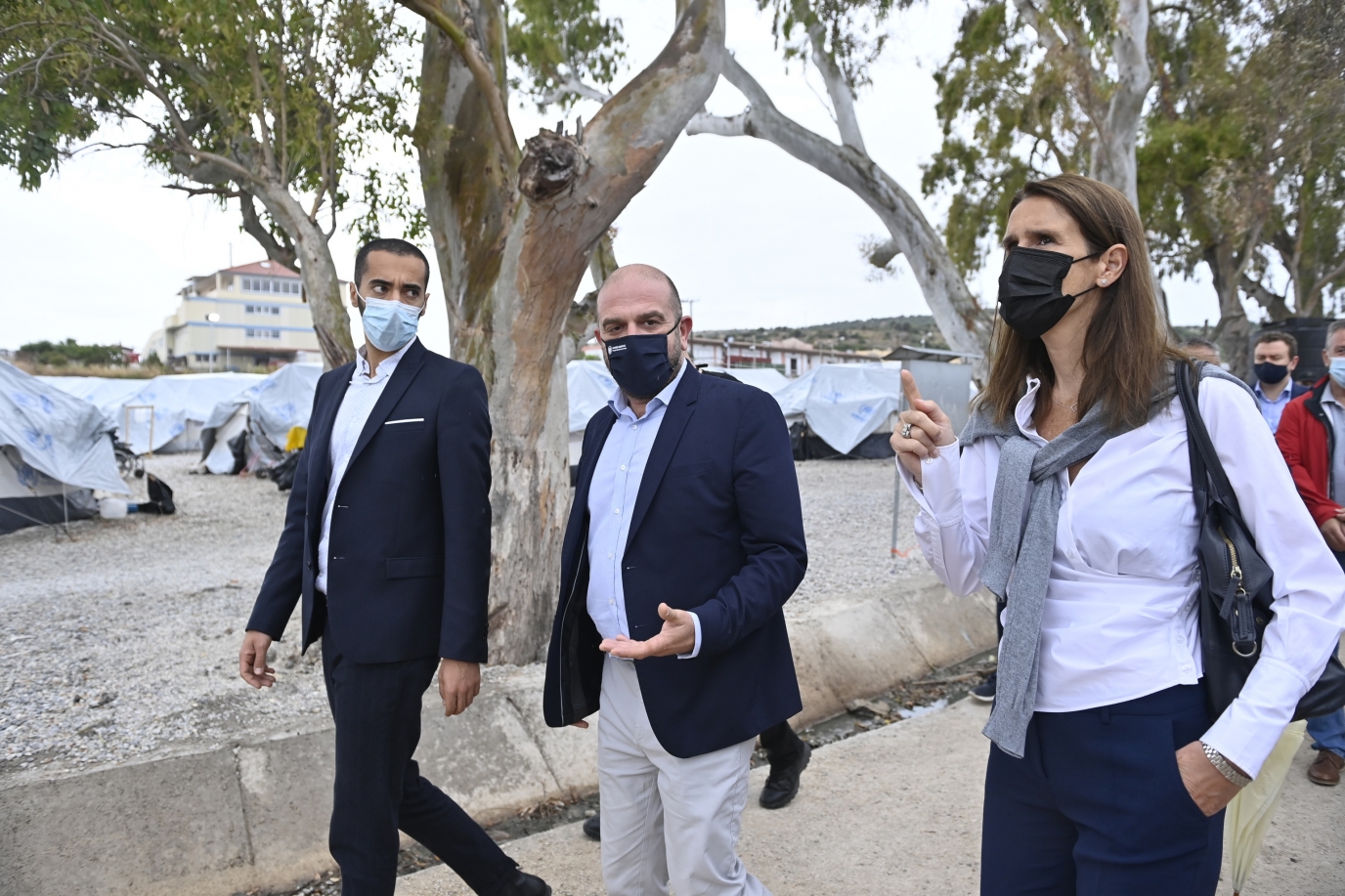 © LAURIE DIEFFEMBACQ
© LAURIE DIEFFEMBACQ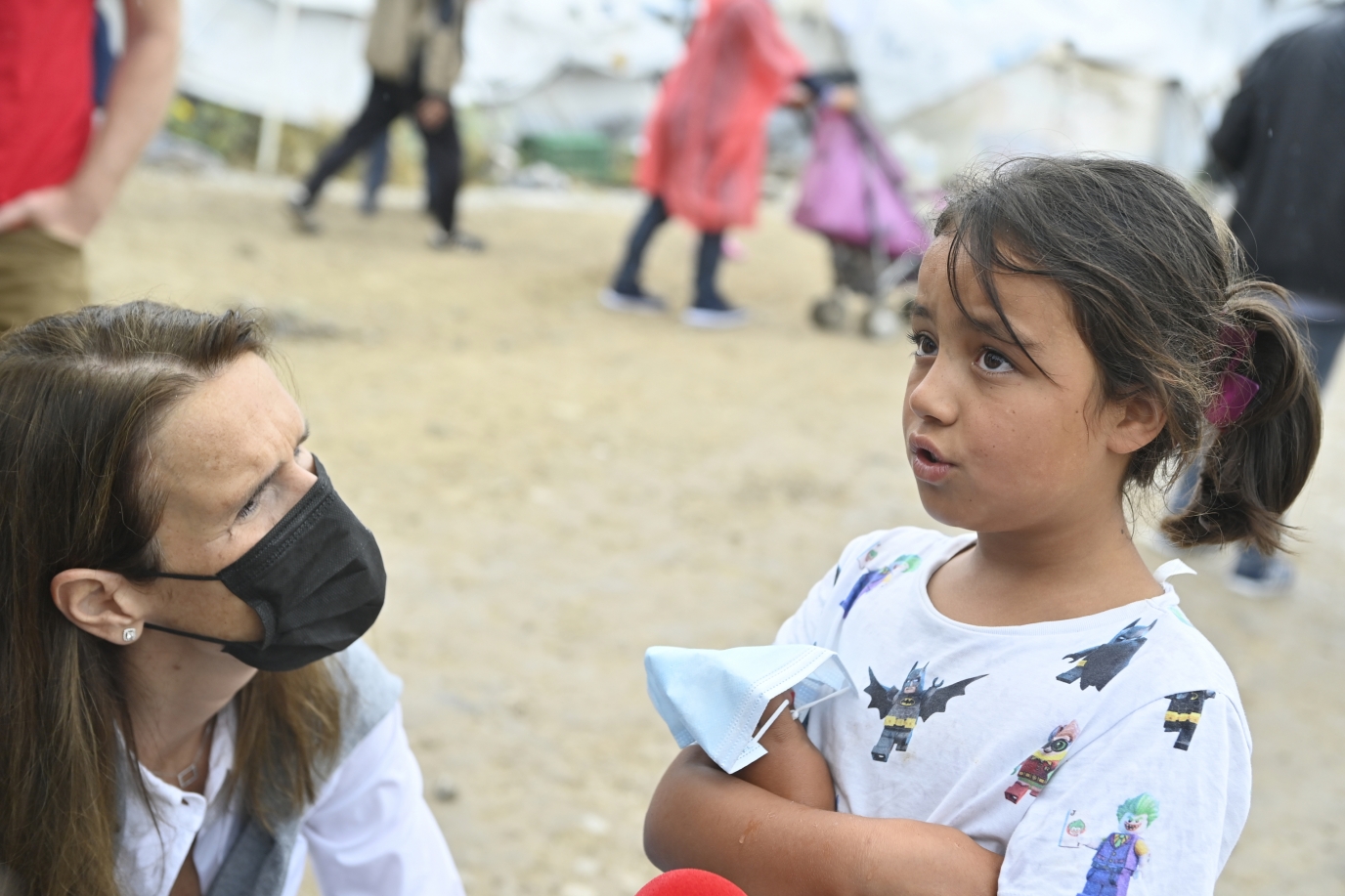 © LAURIE DIEFFEMBACQ
© LAURIE DIEFFEMBACQFollowing this visit, Deputy Prime Minister Wilmès and Secretary of State Mahdi met Mr Nótis Mitarákis, Greek Minister for Migration and Asylum, in Athens. During their working meeting, they were able to have a frank discussion about the experience they had just had and the points of attention for each party in the European negotiations on the Pact. There were no taboos in these exchanges, even regarding sensitive issues such as reception conditions and border management.
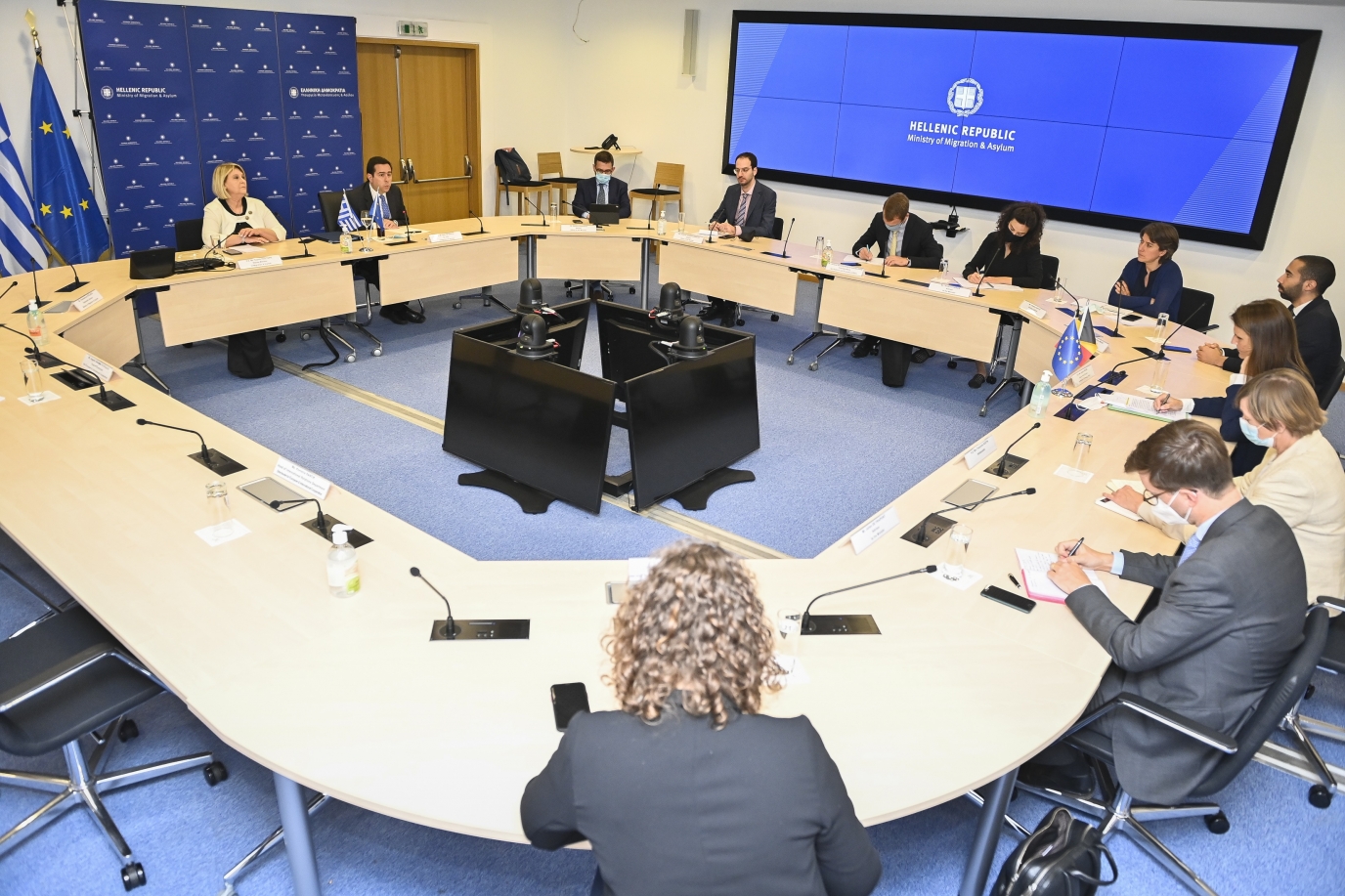 © LAURIE DIEFFEMBACQ
© LAURIE DIEFFEMBACQBilateral meetings
June 16 ended with two bilateral meetings.
The first meeting was with the President of the Republic of Greece, Ms Katerina Sakellaropoulou, at her official residence. Ms Sakellaropoulou is the first woman to hold this position. As a result, in addition to the issues at the heart of the official mission, the question of gender equality and women's rights was naturally a topic of discussion.
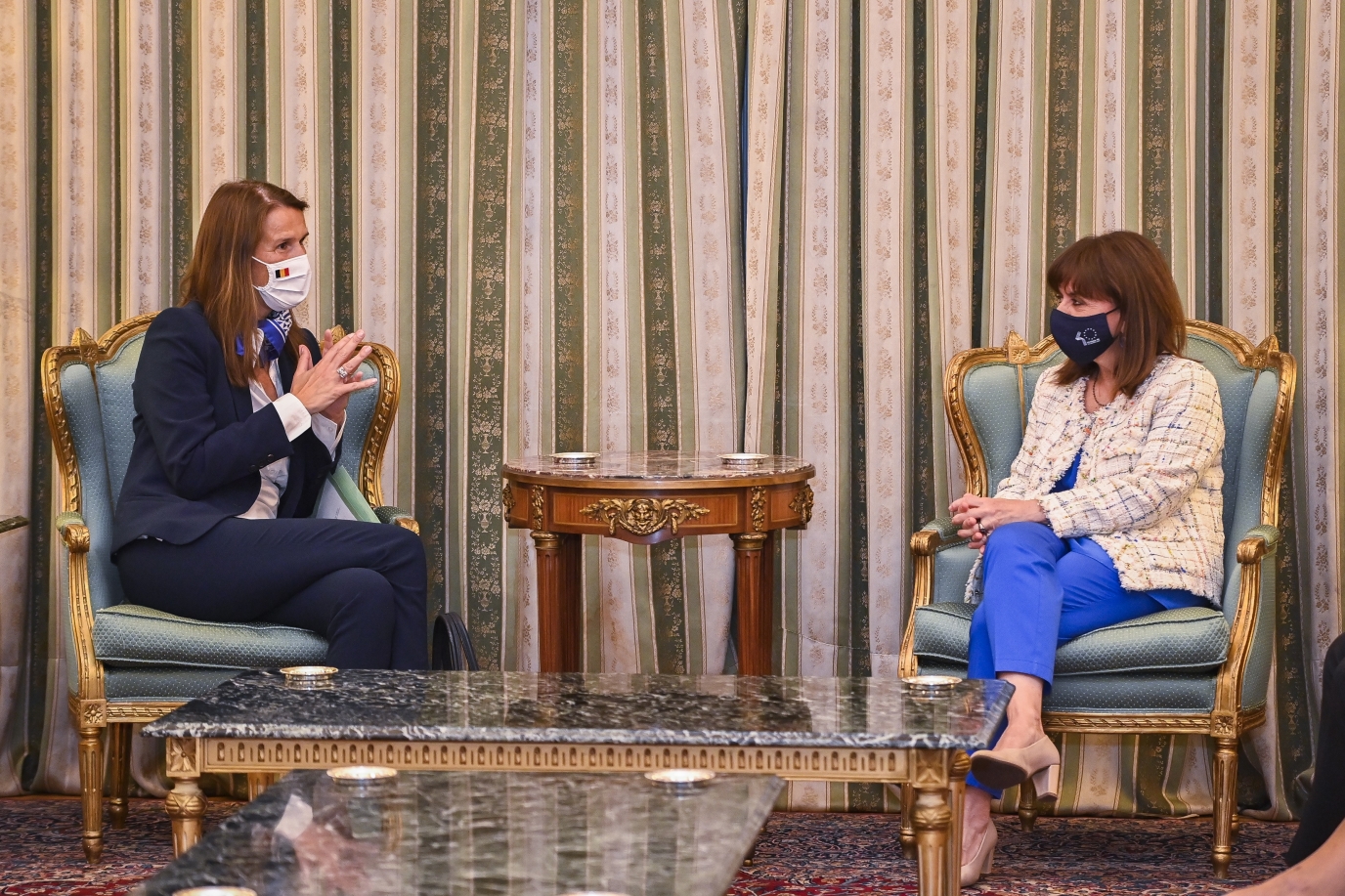 © LAURIE DIEFFEMBACQ
© LAURIE DIEFFEMBACQThe second working meeting was with the Prime Minister, Mr Kyriákos Mitsotákis, and the Minister for Foreign Affairs, Mr Níkos Déndias. The discussions initially focused on the management of the health crisis in the respective countries. Belgium and Greece were also pleased that a European COVID-19 certificate would make it easier to travel in Europe in the summer of 2021. Vaccination was also a point of discussion, particularly its international dimension. Universal access to the vaccine remains a critical need and is reflected in the work of the COVAX mechanism. Ministers also looked ahead to the future by addressing socio-economic issues related to the recovery. At the meeting, Deputy Prime Minister Wilmès shared her analysis of the visit to the Mavrovouni camp.
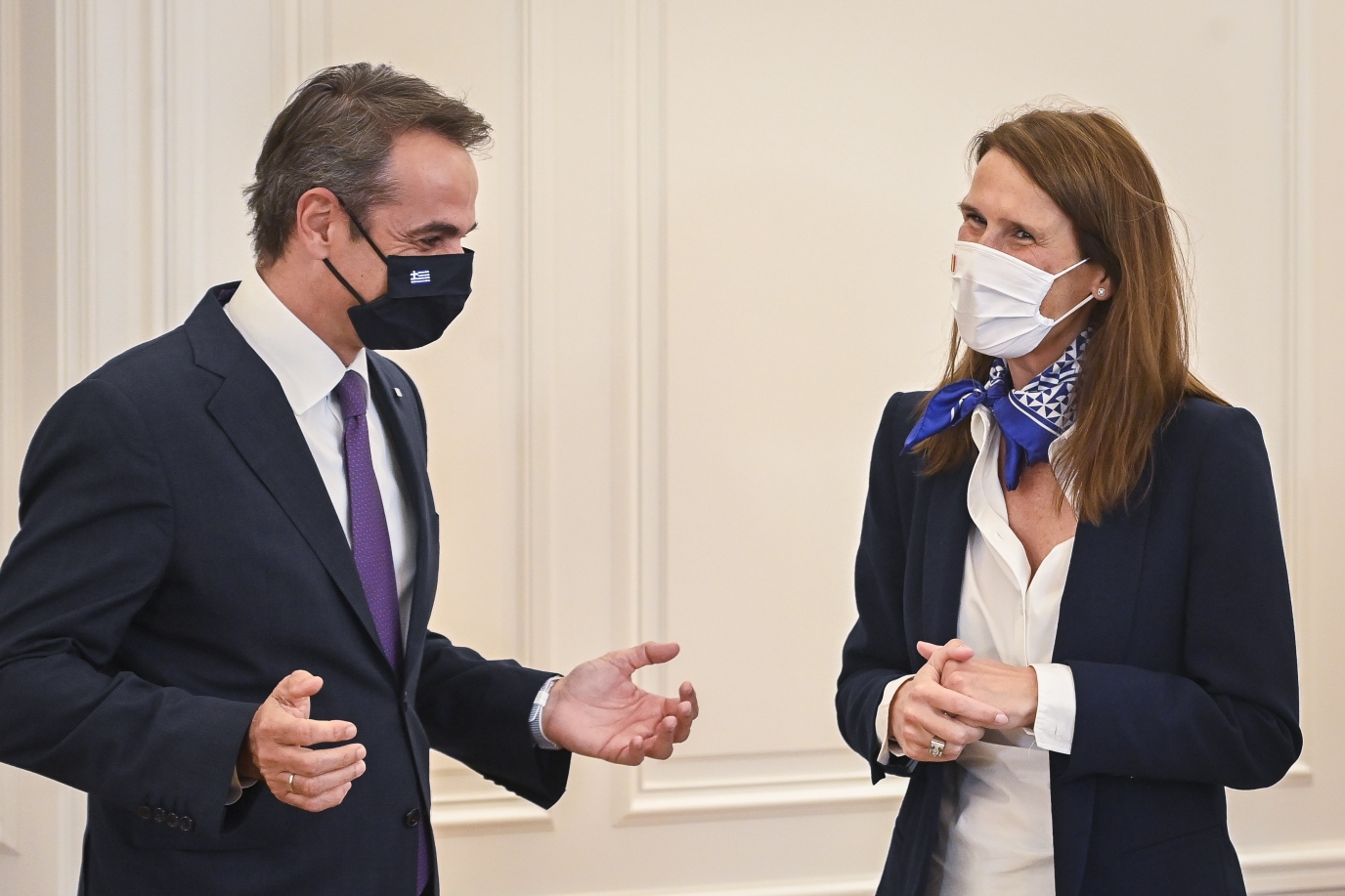 © LAURIE DIEFFEMBACQ
© LAURIE DIEFFEMBACQOn Thursday 17 June, the Deputy Prime Minister first met the Greek Minister of Environment and Energy, Mr Konstantínos Skrékas. The policy of the Mitsotákis government and the recovery plan it has drawn up are characterised in particular by the Greek authorities' desire to speed up the energy transition by focusing on clean and sustainable energy. This enabled Sophie Wilmès to highlight the involvement of certain Belgian companies in the efforts to diversify the supply to this region of strategic importance in the European energy landscape. She also underlined Belgium's expertise in offshore wind energy, as our country serves as an example in this field on the international scene.
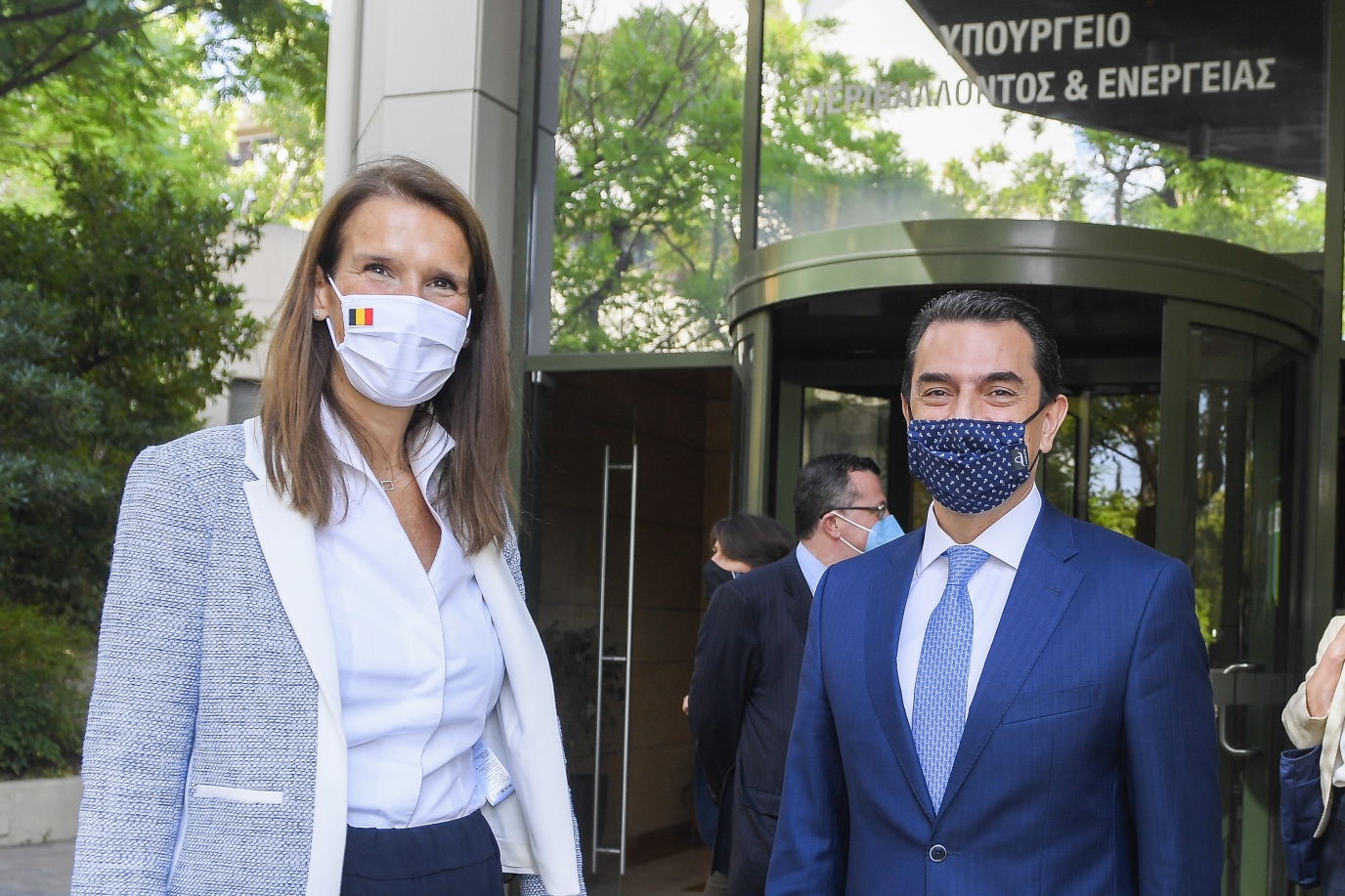 © LAURIE DIEFFEMBACQ
© LAURIE DIEFFEMBACQThis was followed by a working meeting with Foreign Minister Déndias that lasted several hours, illustrating the wide variety of topics discussed by the two ministers and their respective delegations. Among the current issues reviewed, the situation in the eastern Mediterranean was a point of attention for Belgium. The tensions between Greece and Turkey are still ongoing. Sophie Wilmès reiterated her support for Greece. She recognised that Turkey remains a major regional player and cannot be ignored, while regretting its destabilising attitude towards its neighbouring countries in general. "The de-escalation in the eastern Mediterranean is nevertheless a positive signal. We have returned to dialogue. At European level, Belgium continues to support the idea of a 'dual track' approach towards Turkey. This approach perpetuates dialogue and the establishment of a positive agenda capable of identifying common ground, in areas of common interest, while maintaining lines that must not be crossed. Any progress in terms of collaboration will of course depend on Turkey's attitude in the future."
Sophie Wilmès also made a point of addressing the Israeli-Palestinian conflict, as she does regularly with her European counterparts. "Conflict management is not enough. It must be solved by getting to the root of the tensions. Belgium has been advocating for some time for the introduction of incentives and deterrents at European level to keep both parties on the path to peace. The more of us who support this process, the sooner we will achieve tangible results. The EU has a role to play in this conflict,” explained the Deputy Prime Minister.
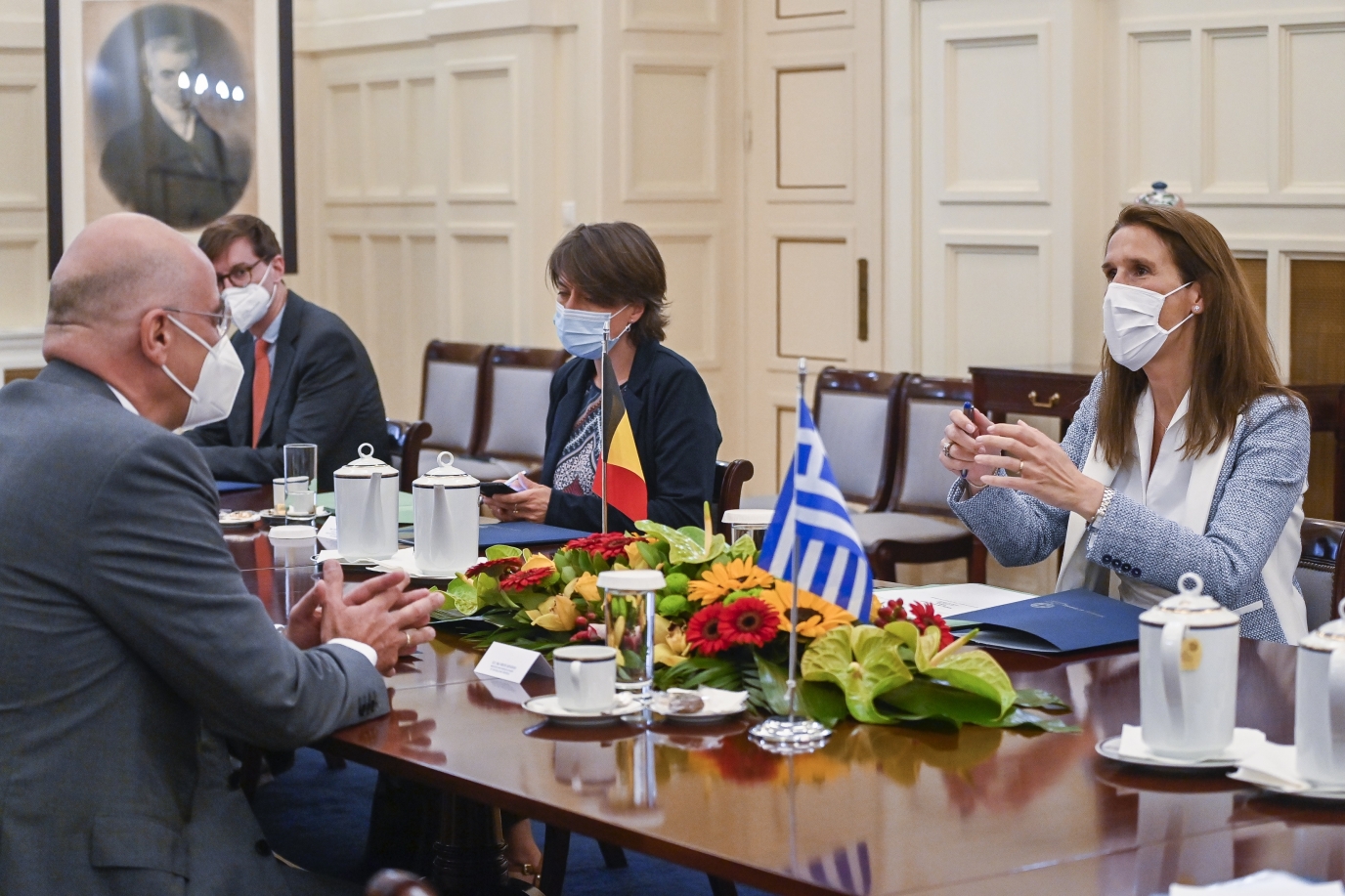 © LAURIE DIEFFEMBACQ
© LAURIE DIEFFEMBACQ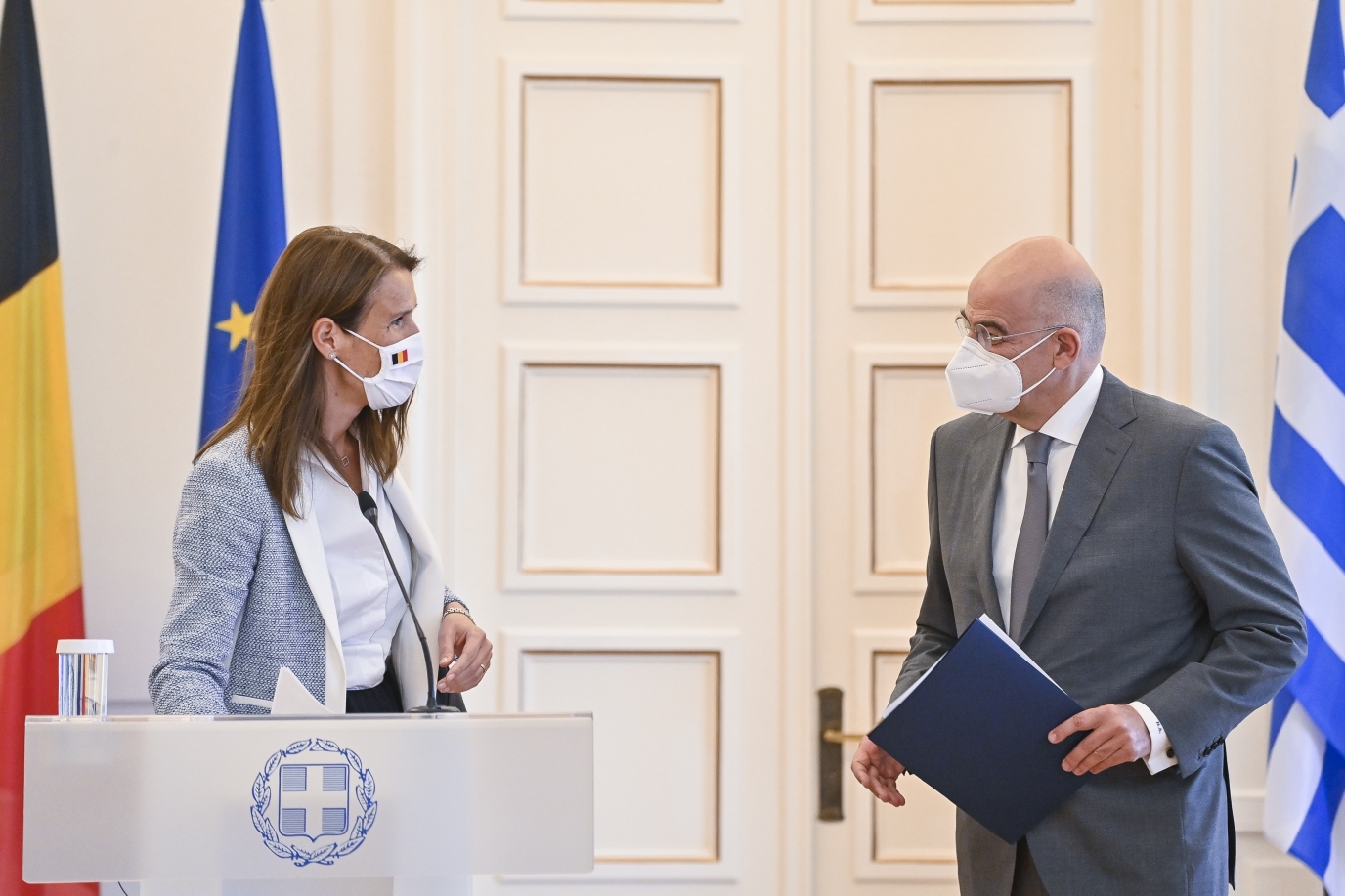 © LAURIE DIEFFEMBACQ
© LAURIE DIEFFEMBACQ

